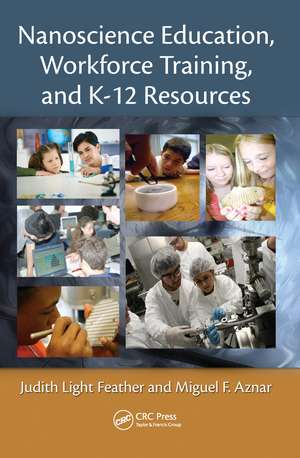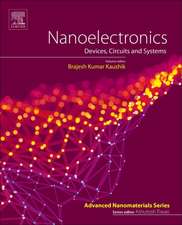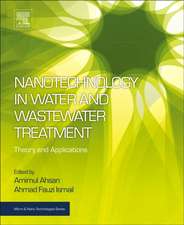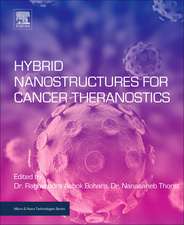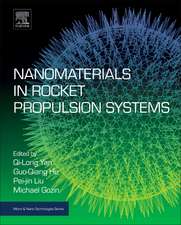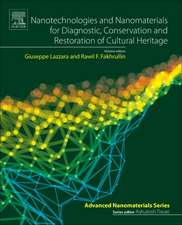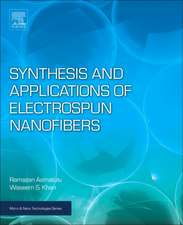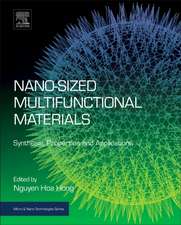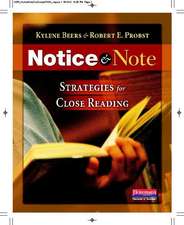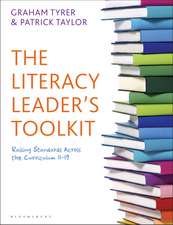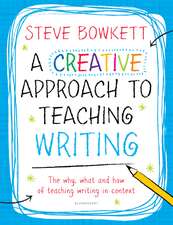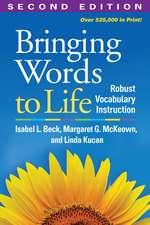Nanoscience Education, Workforce Training, and K-12 Resources
Autor Judith Light Featheren Limba Engleză Paperback – 21 dec 2010
Optimize your use of free resources from the National Science Foundation
The first book of its kind, Nanoscience Education, Workforce Training, and K–12 Resources promotes nano-awareness in both the public and private sectors, presenting an overview of the current obstacles that must be overcome within the complex U.S. educational system before any reform is possible. It’s a race against time—and other countries—and the fear is that U.S. students could lag behind for decades, with ineffective teaching and learning methods handicapping their ability to compete globally.
Focusing on the application of new knowledge, this concise and highly readable book explores the transdisciplinary nature of nanoscience and its societal impact, also addressing workforce training and risk management. Illustrating the historical perspective of the complexity of K–12 education communities, it defines nanotechnology and evaluates pertinent global and national landscapes, presenting examples of successful change within them.
This book is composed of four sections:
Foundations—addresses the national educational matrix, exploring the scientific and social implications associated with the delay in adopting nanoscience education in public schools
Teaching Nanotechnology—discusses the critical process of teaching K–12 students the skills to understand and evaluate emerging technologies they will encounter
Nanoscience Resources and Programs—provides a wide overview of the resources offered by funded outreach programs from universities with nanoscience centers
Framework Applied—analyzes the structure of national government programs and skill level recommendations for nanoeducation from the National Nanotechnology Initiatives
This book offers plans of action and links to sustainable (largely free) development tools to help K–12 students acquire the skills to understand and evaluate emerging technologies. Promoting a holistic teaching approach that encompasses all aspects of science, the authors strive to help readers implement change so that decisions about resources and learning are no longer made "from the top down" by policymakers, but rather "from the bottom up" by teachers, parents, and students at the local level.
Akhlesh Lakhtakia, one of the contributors to this volume, was recently featured on CNN in a discussion on solar energy.
| Toate formatele și edițiile | Preț | Express |
|---|---|---|
| Paperback (1) | 246.99 lei 43-57 zile | |
| CRC Press – 21 dec 2010 | 246.99 lei 43-57 zile | |
| Hardback (1) | 680.73 lei 43-57 zile | |
| CRC Press – 28 iun 2018 | 680.73 lei 43-57 zile |
Preț: 246.99 lei
Preț vechi: 287.57 lei
-14% Nou
Puncte Express: 370
Preț estimativ în valută:
47.26€ • 49.48$ • 39.11£
47.26€ • 49.48$ • 39.11£
Carte tipărită la comandă
Livrare economică 07-21 aprilie
Preluare comenzi: 021 569.72.76
Specificații
ISBN-13: 9781420053944
ISBN-10: 1420053949
Pagini: 341
Ilustrații: 19 b/w images and 4 tables
Dimensiuni: 156 x 234 x 18 mm
Greutate: 1.05 kg
Ediția:1
Editura: CRC Press
Colecția CRC Press
ISBN-10: 1420053949
Pagini: 341
Ilustrații: 19 b/w images and 4 tables
Dimensiuni: 156 x 234 x 18 mm
Greutate: 1.05 kg
Ediția:1
Editura: CRC Press
Colecția CRC Press
Public țintă
Academic and Professional Practice & DevelopmentRecenzii
"There’s a stack of books on our desk and a cloud of PDFs on our desktop that focus on the social and ethical implications (SEI) of nanotech, but this 2011 collection by Judith Light Feather and Migeul F. Aznar will be among the few “go to” texts for our classes and research in coming years. With critical essays, lively pedagogical ideas and techniques, and a veritable database of resources that more than deliver on the title keyword, the book is a timely tool for growing the best of all plausible nanotechnological futures. ... The sheer variety of perspectives represented here helps the volume avoid the usual monotone voice of jargon that too often haunts such compilations. The result is a fresh and lucid take on the metaphorical roadmap to nanotechnology, with a welcome emphasis on bottom-up approaches to education and workforce training. There is much to like here—an impressive, sometimes dizzying array of resources and approaches for educators and administrators in time to make a difference in today’s classroom and hacklab."
-- U.S. Journal of Nanophotonics, Vol. 5, 2011
-- U.S. Journal of Nanophotonics, Vol. 5, 2011
Notă biografică
Judith Light Feather is president of The NanoTechnology Group, Inc., which provides resources for every aspect of nanoscience education, from curriculum to development tools for teachers. The company’s News Division provides informal educational information and news for the public at www.NanoNEWS.TV presently serving on the Board of the NanoEthics Group, and multiple boards at Lifeboat Foundation. Miguel F. Aznar serves as executive director of KnowledgeContext, director of education for Foresight Institute, and on the advisory boards of both the Nanoethics Group and the Acceleration Studies Foundation. He has presented at educational conferences, including Computer Using Educators (CUE), California Educational Research Association (CERA), and California League of Middle Schools (CLMS).
Cuprins
Section I: Foundations Introduction to Nanoscience, Technology, and Social Implications. Education Is a Complex System: History, Matrix, Politics, Solutions. Students Are Shifting the Paradigm. Nobel Laureates Are Role Models in Teaching Nanoscience. Section II: Teaching Nanotechnology What is Nanotechnological Literacy? How Do We Teach Nanotechnology’s Identity? How Do We Teach about Change in Nanotechnology? How Do We Teach Evaluation of Nanotechnology? Section III: Nanoscience Resources and Programs K–12 Outreach Programs. Overviews of Nanotechnology Workforce Programs. Informal Science Resources. Overviews: Global Nanotechnology Initiatives and Resources. Section IV: Framework Applied Assessing the Options for Action and Implementation. The Twenty-First Century Paradigm—Working Together. Rethinking Education—Can We Succeed?
Descriere
Designed for nano-aware individuals in both the public and private sectors, this volume—the first of its kind—provides a concise, readable resource on nanoscience education and workforce development in the field. Defining nanotechnology and evaluating the field’s global and national landscapes, this book provides a historical perspective on the complexity of K-12 education communities and presents successful changes within them. Aimed at helping K-12 students acquire the skills to understand and evaluate emerging technologies, this book offers plans of action and links to sustainable development tools. It is designed to enhance awareness, review the facts, and fabricate a platform from which to launch a plan.
